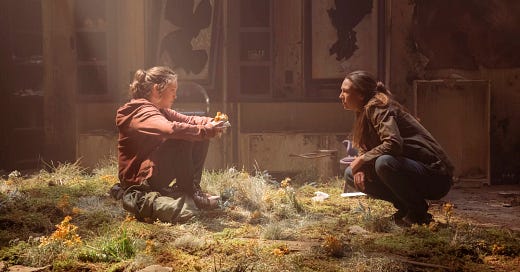Gentle reader,
The technicalities of contemporary life make for a storytelling challenge. Cell phones are ruinous for story arcs, robbing of us mystery, convincing us of mastery. I suppose this is part of the reason we’re now living in such a great age of genre fiction.
If you want to tell a story about what it means to be human, write about mutants. If y…
Keep reading with a 7-day free trial
Subscribe to Church Blogmatics by Beth Felker Jones to keep reading this post and get 7 days of free access to the full post archives.





